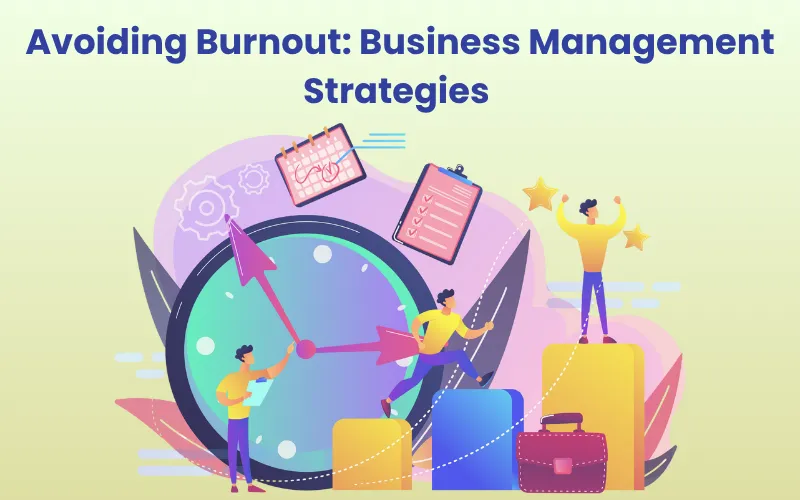In the work environment, getting things done and doing them well often comes before taking care of your own health. Things grow when people are ambitious, but when there is too much stress, people and organisations can get burned out. This is when people and organisations feel emotionally, physically, and mentally worn out. Business leaders need to find strategies to protect their workers from being burned out, maintain things in balance, and keep productivity high over the long term.
Preventing Burnout with Smarter Business Management
Recognizing the Signs of Burnout:
Burnout doesn’t happen overnight. It builds over time, often starting with chronic stress, irritability, declining motivation, and difficulty concentrating. In business environments, it can manifest through high employee turnover, low morale, or missed deadlines. For managers, the risk is even higher as they juggle multiple responsibilities—from decision-making and team oversight to client communication and growth strategies. Acknowledging these early signals is the first step toward resolution.Promote a Culture of Balance:
Encouraging a culture that supports work-life balance is an important part of avoiding burnout. Tell your employees to set limits, take breaks often, and log off after work. Do this yourself. When supervisors always work late or answer messages at all hours, they create an example that others feel they have to follow. When leaders make balance the norm, they create a space where productivity stays high without having to push it.Prioritize and Delegate Effectively:
Prioritising well keeps you from feeling overwhelmed. Not all activities are the same, and managers may avoid micromanaging and stay focused on strategic goals by knowing how to tell the difference between urgent, important, and non-essential work. Delegation is just as vital. Giving team members duties not only helps them learn new skills, but it also makes things easier for leaders. This trust-based dynamic can boost team morale and lower the danger of burnout for both sides.Leverage Automation and Outsourcing:
Technology and external services can dramatically reduce the daily workload. Automating repetitive tasks—such as email marketing, scheduling, or inventory tracking—frees up time for critical thinking and leadership duties. Likewise, outsourcing specific functions can relieve overwhelmed teams. For instance, using a guest post service for your content marketing strategy allows your internal marketing team to focus on brand voice and engagement, while professionals handle the outreach and SEO-heavy lifting. These solutions ease pressure while maintaining performance quality.Build Supportive Systems:
People should be able to talk to each other easily, and managers need to make that happen. It’s important to give employees chances to share their concerns, whether it’s through one-on-one check-ins, team huddles, or anonymous feedback platforms. When people feel heard and encouraged, they are less stressed and more committed. Also, giving staff wellness programmes, access to mental health resources, and chances to grow professionally shows them that their health is important to you.Set Realistic Goals and Expectations:
Setting high goals can make people work harder, but if they are impossible, they can do the reverse. Check your KPIs, timeframes, and benchmarks often to make sure they still match what your team can do and what’s going on in the market. It’s also helpful to let teams be flexible about how they reach their goals. Instead of strict rules, focus on results. This freedom makes employees feel like they own their job, which raises both morale and drive.Foster a Resilient Mindset:
Last but not least, to be successful in business management in the long run, you need to build resilience in yourself and your team. This includes being open to change, learning from mistakes, and enjoying successes, no matter how minor. Leaders who are strong take care of themselves, stay calm under pressure, and change with grace. These traits make teams act in the same way, which sets off a chain reaction that makes the workplace healthier and more sustainable.Final Thoughts:
Burnout is not something to be proud of; it gets in the way of success. Leaders may avoid burnout and encourage long-term growth by using smart business management strategies, making use of resources like a guest post service, and fostering a culture that puts people first. To be successful in the long run, you don’t have to work harder; you have to work smarter, with empathy, purpose, and perseverance.




